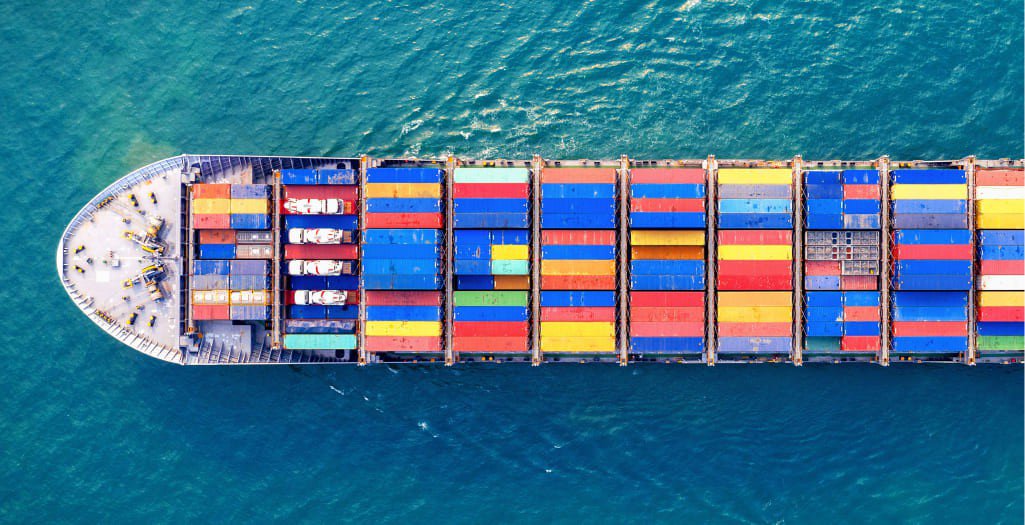Anything you need we are here to help



The vast expanse of the world's oceans has served as a crucial conduit for global trade for centuries, connecting distant shores and fostering economic growth. However, the environmental toll of traditional shipping practices has become increasingly evident, prompting a paradigm shift towards sustainable solutions in the ocean freight industry. In this article, we will delve into the far-reaching impact of sustainable shipping practices on the industry, exploring the benefits, challenges, and the transformative journey towards a greener future.
Traditional shipping methods, characterized by the use of heavy fuel oils, have long been associated with detrimental effects on marine ecosystems. According to the International Maritime Organization (IMO), the shipping industry contributes to approximately 2-3% of the world's total greenhouse gas (GHG) emissions. Moreover, the release of sulfur oxides (SOx), nitrogen oxides (NOx), and particulate matter from ship exhausts further degrades air quality and harms marine life.
In recent years, there has been a growing awareness of the environmental impact of the shipping industry, prompting regulatory bodies and stakeholders to advocate for sustainable practices. The IMO's International Convention for the Control and Management of Ships' Ballast Water and Sediments aims to prevent the spread of harmful aquatic organisms and pathogens through ballast water discharge. Additionally, the IMO's Initial Strategy on the reduction of GHG emissions from ships sets ambitious targets, aiming to reduce the total annual GHG emissions from international shipping by at least 50% by 2050, compared to 2008 levels.
The ocean freight industry is gradually embracing innovative technologies to reduce its carbon footprint. One noteworthy development is the increasing use of alternative fuels, such as liquefied natural gas (LNG) and biofuels. LNG, in particular, has gained traction due to its lower sulfur content and reduced emissions compared to traditional marine fuels. According to a report by the International Gas Union, the global adoption of LNG as a marine fuel is expected to increase by 30% annually, reaching 280 million tons by 2030.
Furthermore, advancements in wind-assist technologies, like wind sails and kite propulsion systems, are being explored to harness renewable energy and enhance fuel efficiency. These technologies have the potential to significantly reduce fuel consumption and, consequently, decrease emissions.
Sustainable shipping practices are not just a moral imperative but also make economic sense. As the global community becomes increasingly environmentally conscious, consumers and businesses are favoring companies that prioritize sustainability. A report by the Carbon Trust reveals that 55% of consumers are willing to pay a premium for products transported sustainably. This shift in consumer behavior has prompted many players in the ocean freight industry to adopt greener practices to stay competitive and enhance their brand image.
While the shift towards sustainable shipping practices is commendable, the industry faces several challenges in fully realizing its environmental goals. The upfront costs of transitioning to cleaner technologies and fuels can be substantial, posing a financial hurdle for many shipping companies. However, governments and international organizations are implementing various incentives, such as grants and tax breaks, to encourage the adoption of sustainable technologies.
Additionally, the lack of a standardized regulatory framework poses a challenge to the widespread implementation of sustainable practices. Clear and universally accepted guidelines are essential to ensure a level playing field for all industry players and foster a seamless transition towards greener alternatives.
In addition to the adoption of clean technologies, the ocean freight industry is leveraging digital advancements. Blockchain and the Internet of Things (IoT) solutions are optimizing supply chains, reducing inefficiencies, and minimizing the environmental impact of shipping. Real-time tracking of cargo, facilitated by these technologies, enhances decision-making and overall operational efficiency.
To overcome challenges and foster sustainability, collaboration between governments, industry players, and environmental organizations is essential. Collective action will create a conducive environment for sustainable practices to thrive, ensuring a harmonious balance between economic growth and ecological responsibility.
Despite the challenges, the ocean freight industry is making significant strides towards a more sustainable future. Collaboration between governments, industry players, and environmental organizations is essential to drive collective action and create a conducive environment for sustainable practices to thrive.
The adoption of digital technologies, such as blockchain and Internet of Things (IoT) solutions, is helping optimize supply chains, reduce inefficiencies, and minimize the environmental impact of shipping. These technologies enable real-time tracking of cargo, facilitating better decision-making and enhancing overall operational efficiency.
The impact of sustainable shipping practices on the ocean freight industry is profound and far-reaching. As the industry navigates towards a greener future, the adoption of clean technologies, economic incentives, and collaborative efforts will play pivotal roles in achieving environmental sustainability. By embracing innovation and addressing challenges head-on, the ocean freight industry has the potential to not only reduce its ecological footprint but also emerge as a beacon of sustainable business practices for the global community. As consumers increasingly demand environmentally responsible choices, the journey towards sustainable shipping is not just a necessity but a strategic imperative for the industry's long-term viability.

